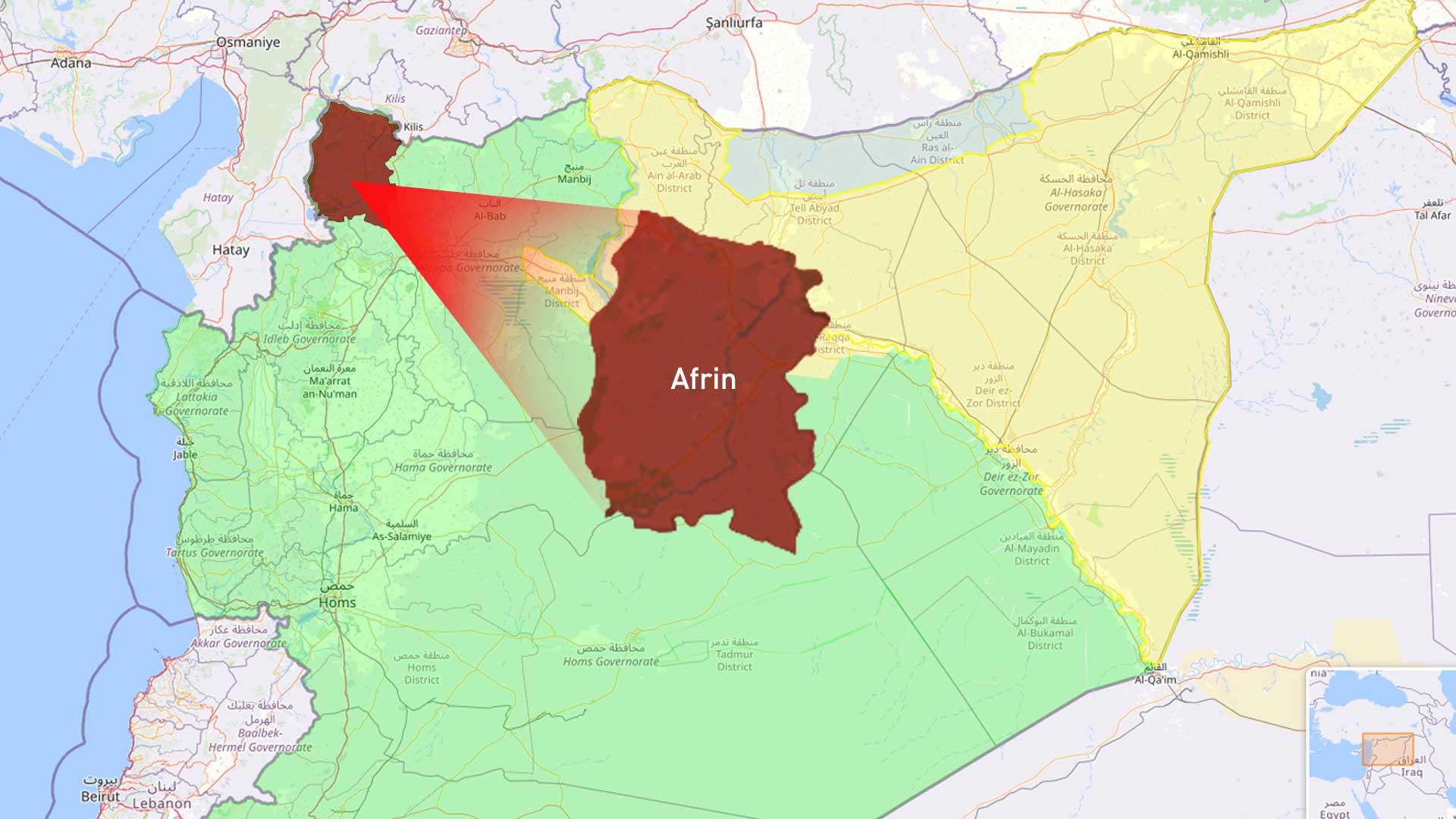Afrin Residents Urge Restoration of Kurdish Language Education in Local Schools
Afrin residents and educators, supported by Kurdish MP Sheikh Saeed Zada, are urging Syrian authorities to restore Kurdish language classes after their suspension. The appeal highlights ongoing cultural rights concerns under Damascus's centralized curriculum.

ERBIL (Kurdistan24) – Residents of Afrin, along with Kurdish language teachers and students from the Teacher Preparation Institute, have formally appealed to Syrian education authorities and local administration officials to reinstate Kurdish language instruction in the region’s schools after it was abruptly suspended at the beginning of the 2025–2026 academic year.
In a collective letter addressed to Azzam Gharib, Governor of Aleppo; Mohammad Turko, Syria’s Minister of Education who is originally from Afrin; and Masoud Battal, Head of the Afrin District Administration, the signatories — including teachers, students, and parents — demanded the immediate restoration of Kurdish language classes. The appeal followed what they described as an “unofficial and unjustified halt” to Kurdish education in the city’s schools.
The statement, sent to multiple authorities and obtained by Kurdistan24, expressed deep concern over the sudden discontinuation of Kurdish teaching without any formal directive from the Syrian Ministry of Education.
“Since the downfall of the former Syrian regime’s control over Afrin in 2012, Kurdish language instruction has been part of the local education system,” the letter said. “This continued even after the administration shifted in 2018 to the Syrian Interim Government and the National Army. Not only was Kurdish education preserved, but the Kurdish Language Department was also established in the Higher Institute of Languages at Free Aleppo University in Azaz in 2022.”
The statement went on to recall the progress made since then: “In 2023, a Teacher Preparation Institute was founded in Afrin, including a Kurdish Language Department. Yet, at the start of this academic year, school directors informed Kurdish language teachers that their work was being halted, despite no official decree to that effect.”
The letter described the decision as a blow to Kurdish cultural rights, particularly after last year’s political changes and the declared success of the Syrian revolution. “This is the opposite of what we had hoped for,” the message stated, “especially after the victory of the Syrian revolution on December 8 last year, when we expected the expansion of Kurdish language education for the children of Afrin — a region with distinct Kurdish identity.”
Concluding their message, the signatories — residents, teachers, and students — appealed for Kurdish to be reintroduced in all Afrin schools and for all Kurdish language teachers to be reinstated. “We ask that Kurdish once again be part of our children’s education, as a fundamental right and as an expression of the region’s identity and cultural diversity,” the statement read.
Kurdish Parliament Member: “We Support the Appeal Entirely”
In a follow-up interview with Kurdistan24, Kurdish Member of the Syrian People’s Assembly, Shiekh Saeed Zada, expressed full support for the appeal, emphasizing that the demand was legitimate and aligned with Syria’s multicultural reality.
“The appeal is good, and we support it wholeheartedly,” he said. “However, the current situation is that the Syrian state curriculum has been applied across all regions previously outside government control, and within that curriculum, there is no provision for Kurdish language instruction.”
According to Zada, formal inclusion of Kurdish as an official subject requires a legal framework at the highest levels of the state. “In my opinion, officially and permanently including Kurdish in the educational system requires either a presidential decree or its incorporation into a new Syrian constitution,” he explained. “And so far, there is still no new constitution.”
Asked about possible temporary or administrative solutions, the parliamentarian suggested a pragmatic step. “At the very least, Kurdish could be added administratively within Afrin’s local education system, even if not yet codified nationally,” he said.
Voices from Afrin: “The Decision Is Unjust and Culturally Harmful”
Rolav Horo, a Kurdish journalist and activist based in Afrin, also spoke to Kurdistan24, expressing deep frustration over the recent decision to eliminate Kurdish language instruction.
“We are dismayed by the decision to cancel Kurdish language education under the pretext of adopting the state curriculum, which does not include the Kurdish subject,” Horo said. “This decision is unfair, especially considering that Afrin is a region with a distinct linguistic and cultural identity and a predominantly Kurdish population.”
She noted that Kurdish language instruction had previously been integrated into local curricula managed by regional councils before the adoption of the state system. “That approach respected Syria’s cultural and linguistic diversity,” she said, adding that removing Kurdish language classes undermines this principle.
Horo called on the Syrian leadership to reconsider the move. “We urge the Syrian presidency and relevant authorities to review this decision and to restore Kurdish language teaching in Afrin’s schools, as it once was. This would show respect for the region’s identity and affirm the right of its people to learn their mother tongue within the framework of Syrian national unity,” she concluded.
Afrin’s residents view the Kurdish language as more than a subject — it is an integral component of their identity and a symbol of resilience amid shifting political and administrative landscapes. The abrupt suspension of Kurdish education has sparked concern that hard-won cultural rights could erode under centralized policy decisions that fail to reflect local diversity.
For Afrin’s parents, teachers, and students, the reinstatement of Kurdish education is both a demand and a declaration — a call to protect a linguistic heritage that has survived decades of suppression and conflict, and a plea for a new Syria that truly honors its pluralism.